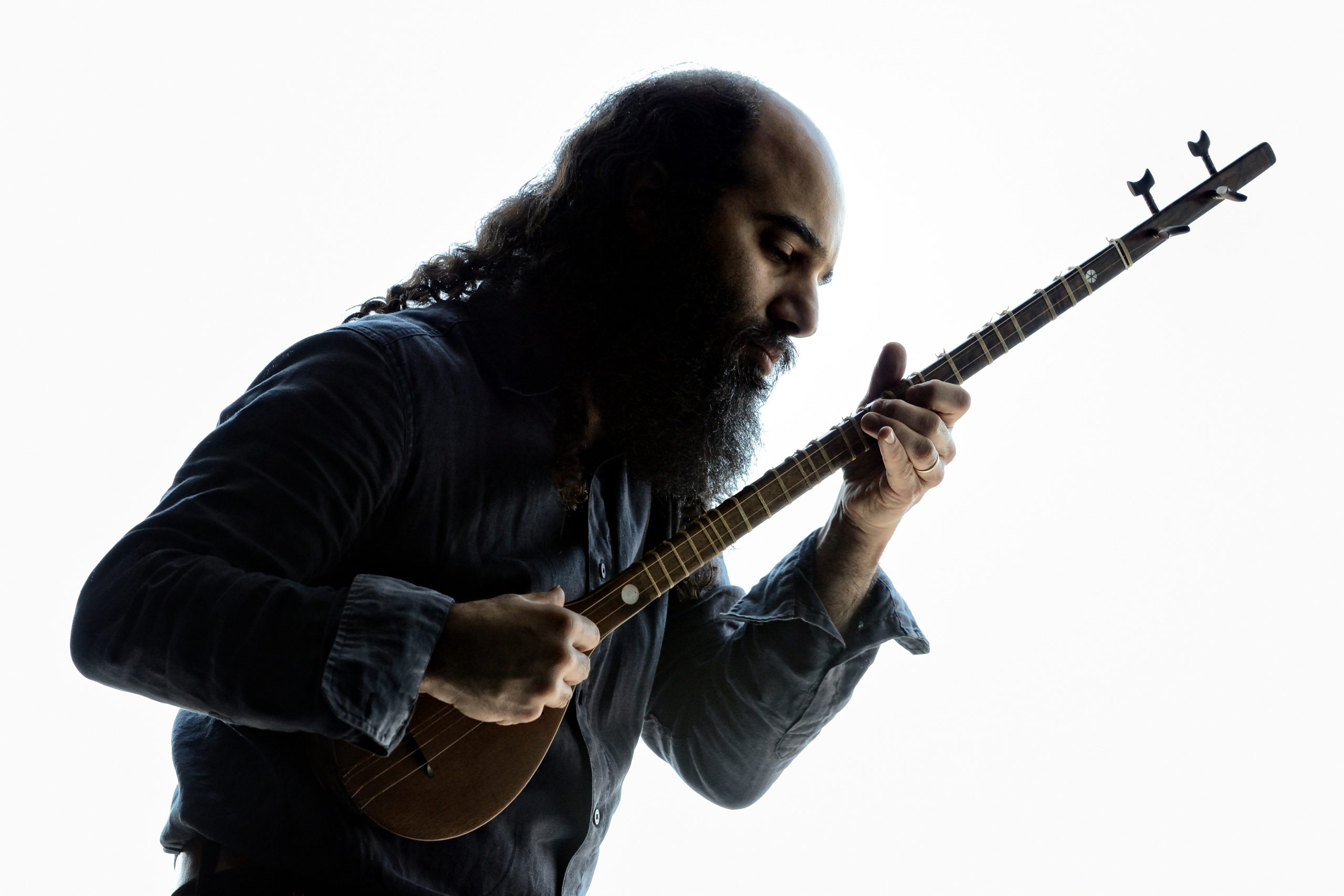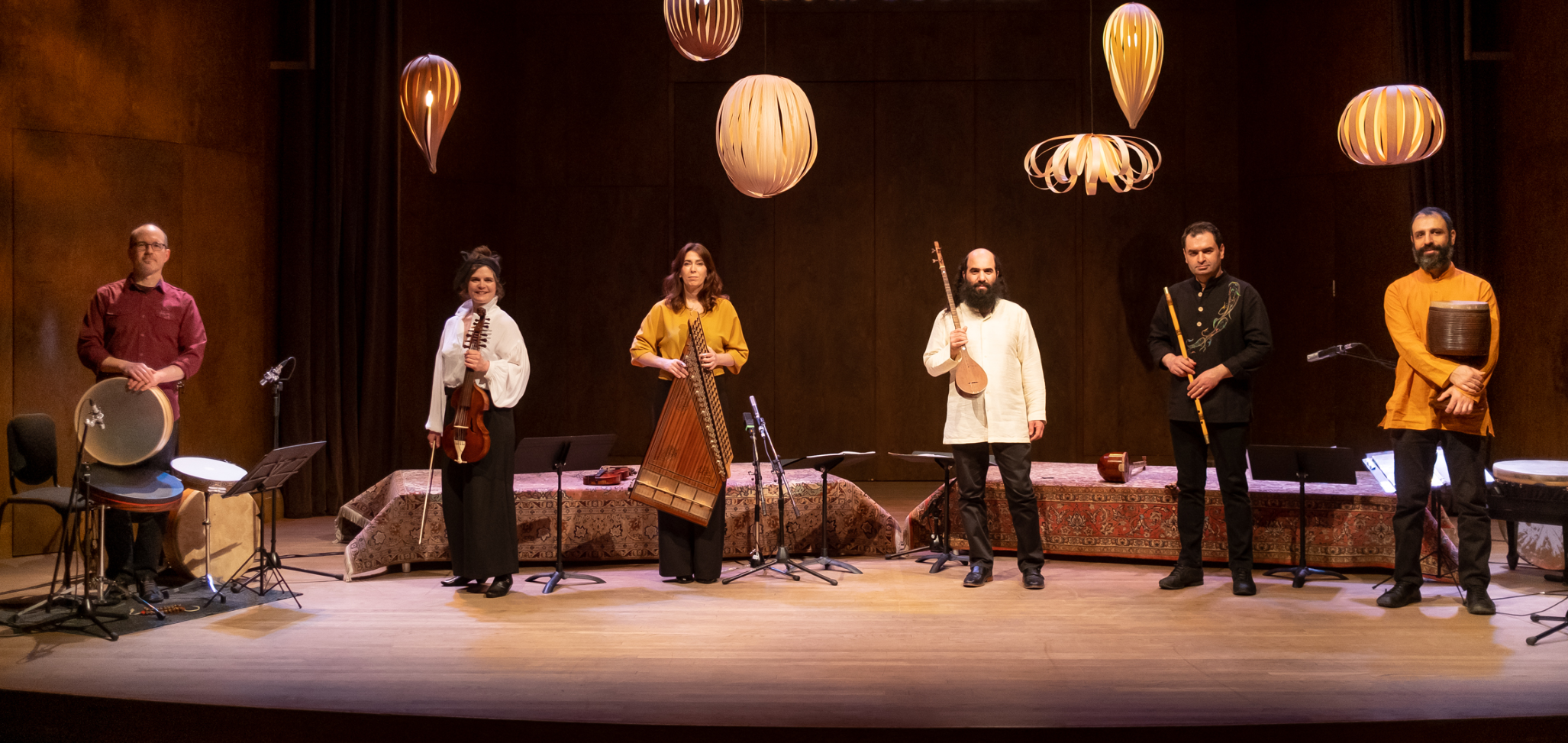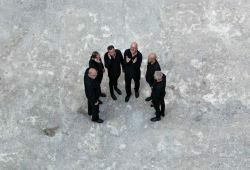Pacific Spirit United Church (formerly Ryerson Church)
Constantinople partners with the seminal Corsican polyphonic singing group A Filetta, to create an enchanting sonic tableau where light and shadow meet, through sacred and secular songs from the rich Corsican musical tradition. Polyphony by the prodigious vocalists of A Filetta, as well as songs and music orchestrated by Kiya Tabassian, will come together in a deeply moving concert.
This concert is generously supported by Fran Watters & Paul Devine and Anona Thorne & Takao Tanabe


Programme
Historia
Music : Kiya Tabassian // text : Helene Dorion / Jean-Claude Acquaviva
Letterella / Bi tô
Music : Jean-Claude Acquaviva / Kiya Tabassian // text : Jean-Claude Acquaviva / Rumi
U furore / Saram khoshast
Music : Jean-Claude Acquaviva / K. Tabassian // text : Seneca / Hafez )
Ilahi / Noi no
Music : Anonymous / Jean-Claude Acquaviva // text : Orlando Forioso
Parvaz / Meditate
Music : K. Tabassian / JC Acquaviva // text : Primo Levi (Se questo è un uomo)
U sipolcru / Bad-e Zaman
Music : Jean-Claude Acquaviva / Kiya Tabassian // text : Jean-Claude Acquaviva
Minetta / À l’aube d’une forêt
Music : Tavagna / Kiya Tabassian // text : Tavagna
Rex / Malaek
Music : Jean-Claude Acquaviva / Kiya Tabassian // text : liturgy / Hafez
Lame Pigeon
Music : Didem Basar / text : Jean-Claude Acquaviva
U Lamentu à Ghesù / Folia
Music and text : Toni Casalonga – Nando Acquaviva – Roccu Mambrini
E strache ceche
Music : Kiya Tabassian // text : Helene Dorion / Jean-Claude Acquaviva
DOWNLOAD THE PROGRAMME
To read or download and print the full programme click here.
Programme Notes
Between sea and mountains, between eastern modes and polyphony — Clair-obscur is born of the desire for deeper dialogue on the part both of the musicians of Constantinople and the singers of A Filetta, the preeminent ensemble of Corsican polyphony. They have created a poetic and musical suite, mixing polyphonies and songs rooted in their traditions and repertoires.
This alliance has roots in two lands, two vital sources of contrasting geographies. On the one hand, the insular beauty of Corsica, between land, sky and sea, austere and powerful, embodied in these polyphonic vocals in turn melancholic and festive; on the other, the refinement of the musical and poetic traditions of Persia, which dictated its magical laws to the East.
The common denominator here is certainly their early and modal form of expression, but even more it is their contemporary language that both ensembles wished to see converge. “To avoid the traps of juxtaposition (…), to go elsewhere by listening to and understanding the Other (…), to create a fresco that can be viewed as a unique work” (Kiya Tabassian): such is the goal of these exploratory artists, who share an unquestionable sense of harmony.
The musical understanding they developed over the years has here given rise to magnificently accompanied sacred and profane songs, revived lamentes and folias, as well as new co-creations. Deep and vibrant, the music seems to arise from the bowels of the earth…

Kiya Tabassian, Music Director
In 1990, at age 14, Kiya Tabassian emigrated with his family to Quebec from his native Iran, bringing with him some initial musical training in Persian music. Determined to become a musician and composer, he continued his education in Persian music, studying with Reza Gassemi and Kayhan Kalhor. At the same time, he studied composition at the Conservatoire de musique de Montréal with Gilles Tremblay. In 1998, he co-founded Constantinople with the idea of developing an ensemble for musical creation that draws from the heritage of the Middle Ages and the Renaissance, of Europe, and of the Mediterranean and the Middle East. Serving as its artistic director, Kiya has developed close to 40 programs with Constantinople. Numerous musical groups and institutions have called upon his talents as a composer, including the Orchestre symphonique de Montréal, the Nouvel Ensemble Moderne and the European Broadcasting Union. He has also composed music for documentary and feature films, including Jabaroot and Voices of the Unheard. Since the summer of 2017, he has held the post of Associate Artist at Rencontres musicales de Conques festival in France. In 2017 he co-founded the Centre des musiciens du monde in Montreal. Kiya also sits on the Board of Conseil des arts et des lettres du Québec.

Ensemble Constantinople
Founded in 1998 by its artistic director Kiya Tabassian, Constantinople is a musical ensemble inspired by the ancient city straddling the East and West. Since its founding, the ensemble promotes the creation of new works incorporating musical elements of diverse musical traditions around the world; drawing from medieval manuscripts to a contemporary aesthetic, passing from Mediterranean Europe to Eastern traditions and New World Baroque. Underpinned by a spirit of research and creation, Constantinople has joined forces with leading international artists such as: Marco Beasley, Suzie LeBlanc, the Mandinka griot Ablaye Cissoko, the Greek ensemble En Chordais, the Belgian duo Belem, The Klezmatics, sarangi virtuoso Dhruba Ghosh, and Iranian kamancheh master Kayhan Kalhor. They are regularly invited to perform in international festivals and prestigious concert halls including: the Salle Pleyel (Paris), the Berliner Philharmonie, the Fes Festival of World Sacred Music (Morocco), the Rencontres musicales de Conques (France), the Aga Khan Museum (Toronto), the Cervantino Festival (Mexico) and the Festival de Carthage (Tunisia). Constantinople has 19 albums to its credit. Over the past fifteen years, Constantinople has created nearly 50 works and travelled to more than 240 cities in 54 countries.

A Filetta
A Filetta’s music is a journey… It could be said that it is a polyphonic and vocal proposal that is challenging, audacious and contemporary, even though coming from a powerful oral tradition.
It is in 1978 that very young people — among whom teenagers, driven by a strong willingness to contribute to the protection of a declining oral heritage — started their journey… and their journey has been long, sometimes sinuous but always punctuated by discoveries and wonderful encounters. Therefore, the singers gladly confess that « the encounter » is written in their musical DNA.
The repertoire produced today by this vocal sextet is a faithful reflection of what is, since the beginning of the 1980s’, its « forward walk » : a trajectory outlining a movement initiated in a secular orality and asserting itself in the twists and turns of writing without complex, freed from any filial obligation. Sacred music stands alongside profane songs with multiple influences, films scores with Bruno Coulais, creations for Sidi Larbi Cherkaoui’s choreographies, choruses for an antique tragedy or pieces from a requiem requested by the Saint-Denis Festival.
A Filetta’s music is dedicated to a vision of the world rejecting without any ambiguity identitarian closure and the vocal ensemble’s philosophy is encapsulated in this beautiful aphorism by René Char : « The purest harvests are sowed in a ground that does not exist; they get rid of gratitude and only owe to spring.
Media


